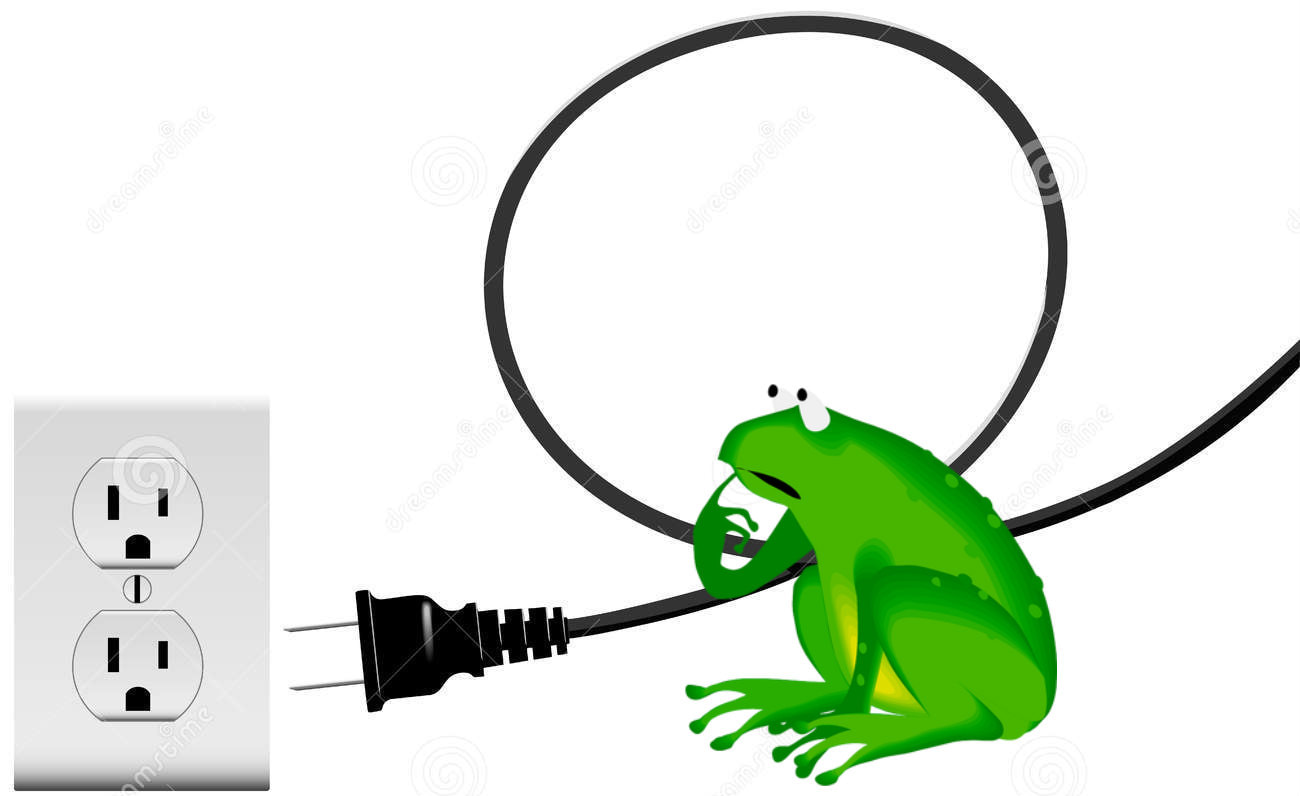When someone asks you how you're doing, how often can you say "I'm great!" and really mean it? Probably not very many. It turns out, that many of us operate from a place of fear. Humans and frogs, too, are experiencing more stress, anxiety, comparison, shame, and even depression. Life IS hard! But experts tell us that there things we should (and shouldn't) do to unplug and help restore our sanity.
And while humans (and frogs) are living in a modern world, we still need to take time out to switch off our brains after bouts of focused work. And this does not mean being plugged into our technological devices, ticking off items on our to-do lists, or working out at the gym. "True relaxation is about switching off our focused mind to allow the default mode of the brain to switch on. As the mind recovers from activity, it begins to wander, to imagine, to explore ideas and engage our creativity. That’s something we don't do often enough." Harvard University lecturer, Dr. Ben-Shahar recommends thinking about mental recovery on 3 levels; 1. The "micro" level - This is the 60-90 minute mark where we move away from whatever we're doing and let our minds take a break for a few minutes. 2. The "mid" level - This is the daily break we take, usually before bed, to journal, read, practice mindfulness...our little bit of quiet relation time. 3. The "macro" level - This may happen only a few times a year. It could be a short break of only a couple of days or a longer one where we travel, letting go of our routines. We see and do things that are a novelty to us, engaging our brains in a different way. The secret to making this extended break successful is to resist the urge to stay "plugged in" to what's going on around us. Except, of course, in emergencies.
Ask yourself, "Which of these breaks am I doing well and which ones need work?"
Before you begin planning how to make the most of these three breaks, here's a bit of information you need to know. The human brain wanders about half of the time you're awake and engaged in some kind of work. "Yet not all of that mind-wandering is good for us. Research by Harvard psychologists Matthew Killingsworth and Daniel Gilbert shows that people tend to be most unhappy when their minds are in this default mode of operation."
Psychologist Jerome Singer has identified three different styles of daydreaming. 1. Poor attention control is when you have trouble focusing on anything for very long. This prevents humans from engaging in any kind of deep work. This type of mind-wandering distracts you from your best thought. If you fit into this category, you may benefit from a mindfulness practice which helps to focus and train the mind to concentrate on the here and now. You can discipline your mind without exasperation and/or judgment. 2. The second one is "guilty-dysphoric." This happens when your mind ruminates on the negative things in your life without coming up with any real solutions. You get caught up in a loop of negativity which leads to unhappiness and a feeling of helplessness. As Eckhart Tolle once said, "Once you know a certain food makes you sick, would you carry on eating that food and asserting that it's okay to be sick and continue to eat it?" Probably not. So why let your mind make you sick? Writing in a gratitude journal can help you realize that your life isn't as bad as you may think.
The third way human minds daydream is actually beneficial for you. It's called "positive-constructive." This allows you to engage in "autobiographical planning." This is where you build coherence in your lives—connecting the dots from your past, making sense of who you are, and thinking about your future self in relation to where you have been. It also includes the moral and interpersonal challenges you face every day, finding meaning in your experiences and taps into your highest self to rise up to them. The way to do this is to build up your strengths in perspective, compassion, courage, and hope. Hope is very important to the well-being of everyone.
The big takeaway is, to unplug often and do it well. Work on crafting your own life story...one that you're proud to call your own!
I trust you had a wonderful weekend. Thank you for joining be here today and I hope that this information will be helpful for you. Feel free to stop back by tomorrow. I look forward to meeting you here, Until then, I wish you
PEACE.

 RSS Feed
RSS Feed